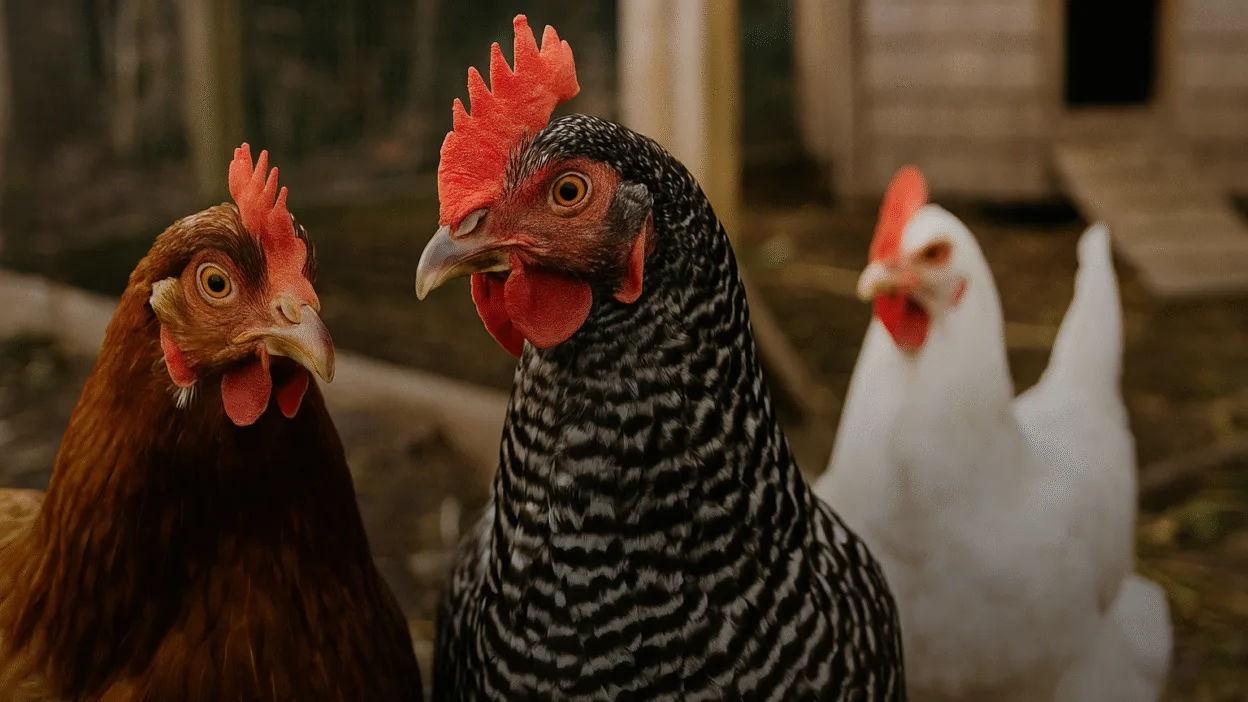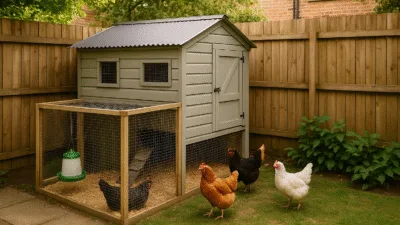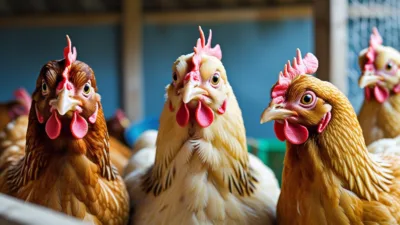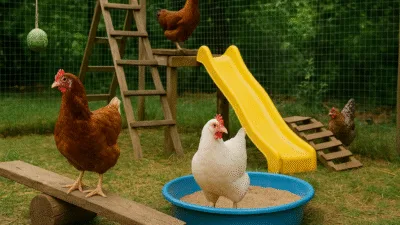Backyard chickens are generally hardy, but they can still face a variety of health problems. Understanding the most common issues and knowing how to treat them will help you maintain a healthy and productive flock. Early detection and prevention are key to keeping your birds happy.
1. Mites and Lice
External parasites like mites and lice can cause itching, feather loss, and reduced egg production.
Remedies
- Dust chickens with food grade diatomaceous earth or poultry-safe pest powder
- Clean and disinfect the coop regularly
- Provide dust bathing areas to help chickens naturally control parasites
2. Respiratory Infections
Common symptoms include coughing, sneezing, nasal discharge, and wheezing. These infections can spread quickly in small flocks.
Remedies
- Isolate sick birds to prevent spread
- Keep the coop well ventilated and free of drafts
- Provide vitamin supplements to strengthen immunity
3. Egg Binding
Egg binding occurs when a hen cannot pass an egg, which can be life-threatening if not treated.
Remedies
- Soak the hen in warm water for 15 to 20 minutes to relax muscles
- Gently massage the abdomen to encourage the egg to pass
- Provide a calcium-rich diet to prevent recurrence
4. Bumblefoot
This is a bacterial infection of the foot that usually develops after a cut or injury.
Remedies
- Soak the foot in warm Epsom salt water
- Apply an antibiotic ointment and wrap the foot
- Keep perches smooth and clean to prevent injury
5. Coccidiosis
A parasitic disease that affects the intestinal tract, especially in young birds. Symptoms include diarrhea, weight loss, and lethargy.
Remedies
- Provide medicated chick starter feed to prevent outbreaks in young birds
- Keep bedding clean and dry to reduce parasite spread
- Use probiotics to improve gut health
6. Nutritional Deficiencies
Poor diet can lead to weak bones, poor feather quality, and reduced egg production.
Remedies
- Feed a balanced commercial poultry feed suited to the bird’s age and purpose
- Supplement with kitchen scraps, greens, and grit for digestion
- Provide fresh water at all times
Preventive Measures for Overall Health
- Keep coops clean and dry to reduce disease risks
- Rotate pasture or free range areas to prevent parasite buildup
- Quarantine new birds for at least two weeks before introducing them to the flock
By staying alert and practicing preventive care, you can avoid most common chicken health problems. Healthy chickens mean better egg production and a happier backyard experience.



